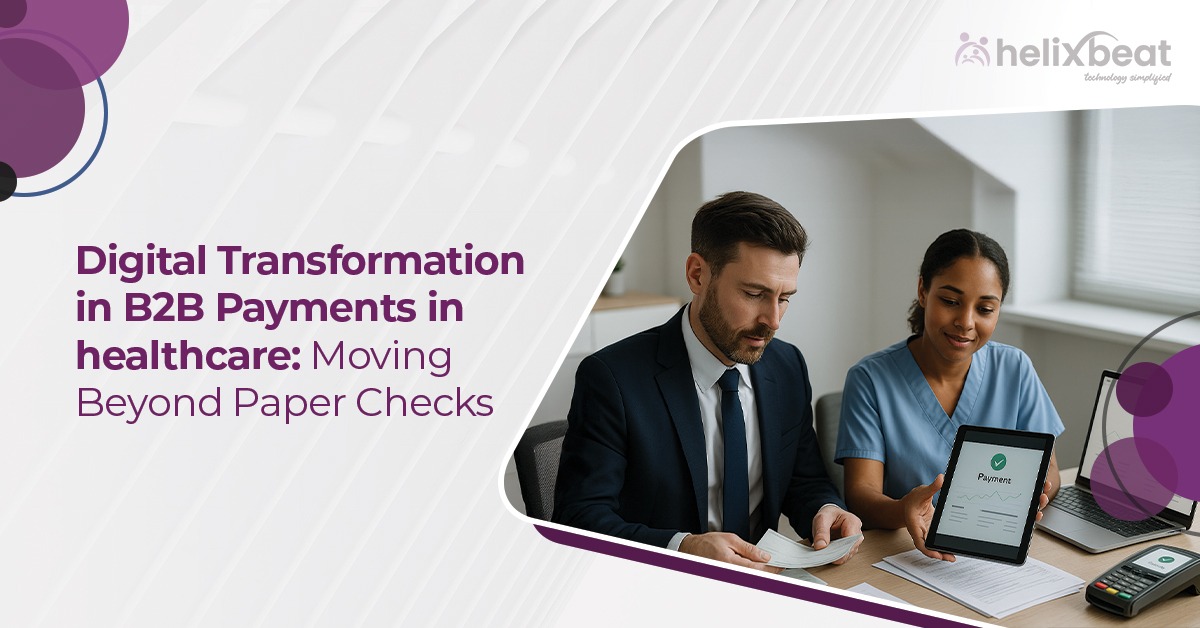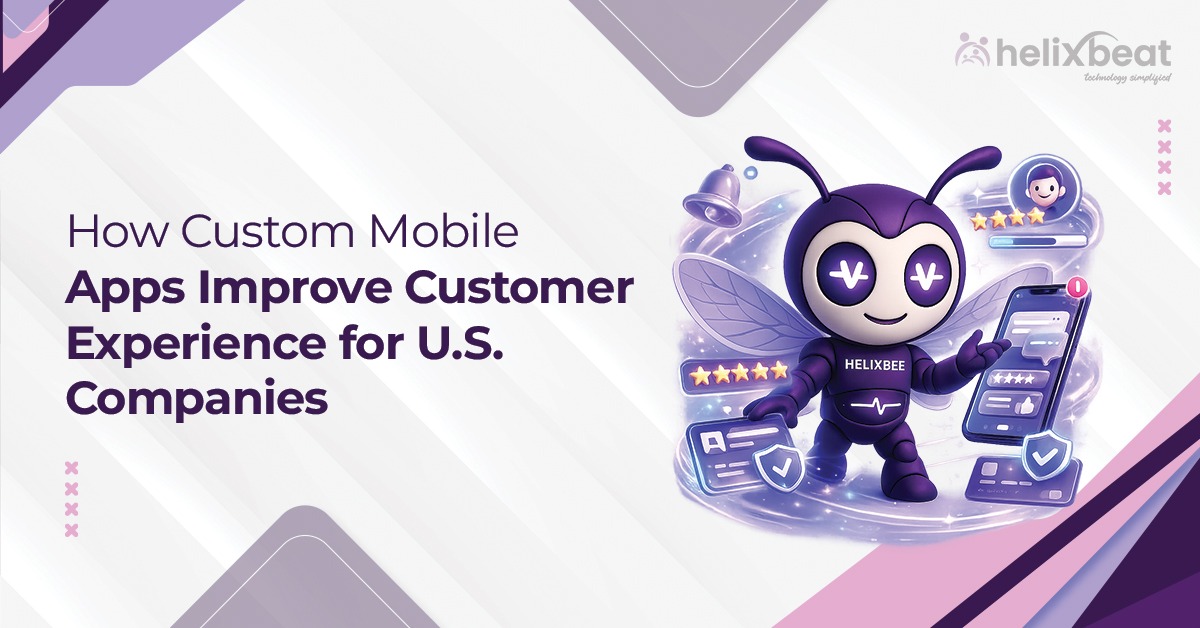In healthcare, every moment matters—lives are saved through speed, precision, and coordination. But behind the scenes, the financial side tells a different story. Many hospitals and clinics still rely on outdated B2B payment methods like paper checks, faxed invoices, and manual approvals.
These old-school systems slow everything down, from paying vendors on time to managing cash flow effectively. It’s frustrating for finance teams who spend hours chasing payments, fixing errors, and navigating complex billing rules.

Worse, these delays and mistakes can disrupt the flow of medical supplies and services—impacting patient care.
In an industry that runs on trust and timing, healthcare providers need more than band-aid fixes. It’s time for a real change. By moving toward digital B2B payment systems, the healthcare industry can finally reduce the stress, streamline the process, and build a financial foundation that keeps up with the urgency of patient care.
Key Takeaways
- The U.S. healthcare industry loses over $40 billion to invoicing issues and $6 billion to payment errors annually.
- B2B healthcare payments are going digital, improving trust, visibility, and operational control.
- Manual invoicing and paper checks create inefficiencies, while automated solutions slash errors and speed up payment cycles.
- Healthcare payment companies like PayNova offer cheap payment gateways and powerful tools designed for compliance, security, and scalability.
- Real-time visibility, flexible payment options, and blockchain security are no longer luxuries—they’re necessities.
- Digital transformation of B2B payments is not just about cost-saving—it’s about creating resilient, future-ready healthcare organizations.
Table of Contents
Understanding B2B Payments in Healthcare
B2B (Business-to-Business) payments in healthcare typically involve financial transactions between hospitals or healthcare providers and their vendors—such as pharmaceutical companies, suppliers of surgical instruments, diagnostic labs, and third-party service providers.
Unlike patient-facing payments, B2B healthcare payments are more complex. They often require:
- Multi-level approvals
- Insurance interactions
- Vendor contract compliance
- Bulk purchases and invoice reconciliation
This ecosystem demands seamless coordination and accuracy, which is hard to achieve with manual checks and spreadsheets. That’s where B2B payment companies come in, offering modern solutions designed to handle this complexity with ease.
What Are B2B Payment Companies in Healthcare?
B2B payment companies in healthcare are specialized financial technology providers that facilitate secure, efficient, and automated transactions between healthcare providers (like hospitals and clinics) and their vendors (such as suppliers, labs, equipment manufacturers, and service providers).
These companies offer digital solutions to replace outdated methods like paper checks and manual invoicing—streamlining the entire billing and payment cycle.
In the healthcare sector, managing payments is not a simple task. Providers often deal with multiple vendors, insurance policies, compliance standards (like HIPAA and PCI-DSS), and large volumes of transactions.
B2B payment companies in healthcare are designed to simplify this complexity. They provide platforms that integrate with existing ERP or EHR systems, automate invoice matching, and offer real-time payment tracking.
By adopting services from B2B payment companies in healthcare, organizations can reduce processing costs, eliminate human error, and gain greater financial visibility. These companies also enhance compliance and security, ensuring sensitive data is protected at every step.
Unlike generic payment processors, B2B payment companies in healthcare understand the unique challenges of the industry—from regulatory pressure to high-value vendor relationships. They offer customizable solutions that support ACH transfers, virtual cards, digital wallets, and recurring payment plans. This flexibility empowers finance teams to manage diverse payment needs with ease.
In short, B2B payment companies in healthcare are redefining how providers handle vendor payments. They move organizations away from time-consuming, manual workflows and toward automated systems that boost accuracy, efficiency, and trust.
Challenges Faced by Healthcare Providers in B2B Payments
1. Manual Invoicing and Paper Checks
Despite the push for modernization, over 85% of B2B transactions in healthcare are still processed through paper checks. This outdated approach not only slows down payments but introduces unnecessary risks. Manual data entry leads to mistakes, and lost or delayed checks create a ripple effect of financial inefficiencies. In contrast, B2B payment companies now offer digital-first alternatives that reduce the dependency on paperwork and streamline payments. Yet, adoption remains a challenge, particularly for providers lacking access to affordable or cheap payment gateway solutions.
2. Delayed Payments and Cash Flow Bottlenecks
Healthcare providers often face long payment cycles. A single payment error can add up to 64 days of delay, creating serious cash flow issues. These delays strain supplier relationships and can impact the timely procurement of medical supplies. With tighter budgets and growing pressure to reduce costs, providers must explore payment platforms for small businesses that offer automation, speed, and accuracy. Streamlining B2B transactions is essential not only for maintaining healthy vendor relationships but also for sustaining day-to-day operations.
3. Lack of Real-Time Visibility
Many finance teams operate in the dark—without a centralized platform, tracking what’s paid, pending, or overdue becomes a guessing game. This lack of real-time financial visibility makes it hard to forecast revenue, control expenses, or make timely decisions. Healthcare payment companies are now addressing this issue by providing platforms that offer dashboards and analytics, helping CFOs gain a clear picture of cash flow and payment cycles.
4. Compliance and Security Risks
Handling sensitive payment data in the healthcare sector comes with high stakes. Regulations such as HIPAA and PCI-DSS are non-negotiable, and manual systems make it harder to stay compliant. Every human touchpoint introduces the risk of data breaches. Leading B2B payment companies ensure that transactions are encrypted and compliant by design, making them more secure than traditional methods.
5. Fragmented Systems and Integration Issues
Most healthcare organizations still use legacy systems that don’t communicate with each other. This creates duplication, slows down reconciliation, and increases the likelihood of financial errors. Modern payment platforms for small businesses focus on seamless ERP and EHR integration, enabling healthcare providers to unify data and improve operational efficiency without overhauling their entire tech stack.
Addressing these challenges isn’t just about modernization—it’s about building a payment ecosystem that supports speed, trust, and transparency in healthcare.
Digital Transformation: Solving the Problem with Automation
1. Automating Procurement and Invoicing
Automated B2B payment platforms for small businesses help digitize procurement, speeding up vendor payments while eliminating manual data entry and errors. For healthcare, this means:
- Faster access to medical supplies
- Lower processing costs
- Improved vendor relationships
Platforms like PayNova enable electronic invoice matching, real-time approvals, and automatic check replacements with ACH or digital wallet payments.
2. Enhanced Cash Flow Management
With B2B payment companies offering smart dashboards, CFOs and finance teams get full visibility over their accounts payable. Real-time data on pending invoices, cleared payments, and cash inflow help:
- Optimize spending
- Prevent overspending
- Avoid payment gaps during emergencies
3. Reducing Costs and Errors
The healthcare industry loses $40 billion annually to invoicing issues and another $6 billion to payment errors. Automating these payments using modern healthcare payment companies:
- Cuts down processing time
- Minimizes dispute
- Ensures accurate reconciliation
4. Improved Compliance and Security
Digital platforms ensure every transaction meets HIPAA and PCI-DSS standards. Cheap payment gateways like PayNova offer built-in encryption and fraud detection systems, eliminating security concerns while staying affordable.
Transparent, Scalable Payment Systems Are the Future
One of the greatest advantages of digital B2B healthcare payments is transparency. Every transaction leaves a digital trail—reducing audit stress and enabling accountability across departments.
Scalability is also key. As hospitals open new branches or manage multiple facilities, a unified payment platform allows them to expand operations without expanding their finance team proportionately.
B2B payment companies that offer centralized dashboards, real-time reports, and cross-departmental integration ensure your back office grows with you.
PayNova: Powering the Next Wave of Healthcare Payments
As one of the leading healthcare payment companies, PayNova offers a full suite of solutions to eliminate outdated systems and deliver digital-first efficiency.
Here’s how PayNova makes a difference:
- Zero-Fee Payments Network
Reduce costs with no transaction fees and say goodbye to inflated interchange charges—ideal for budget-conscious providers looking for a cheap payment gateway.
- Blockchain-Based Payment Infrastructure
Every transaction is securely stored and tamper-proof, adding trust and reducing reconciliation errors.
- ERP and EHR Integration
Seamless syncing with your existing systems to eliminate manual entry and human error.
- Real-Time Cash Visibility
Track every transaction across departments or branches, all from one dashboard.
- Flexible Payment Options
Support for ACH, credit cards, digital wallets, and recurring payments.
- Compliance Built-In
HIPAA and PCI-DSS compliant from the ground up, giving peace of mind to finance teams
Case in Point: Edgewood Healthcare’s Transformation
Edgewood Healthcare was stuck in spreadsheet hell—managing payments with manual checks, disjointed systems, and zero visibility.
After switching to PayNova, they:
- Reduced payment cycle time by 45%
- Cut costs by eliminating check processing
- Streamlined procurement with automated approval flows
- Got real-time insights into facility-wide payments
The result? Financial efficiency without losing control. That’s the power of choosing the right B2B payment companies.
Why This Matters Now
The healthcare sector can’t afford to operate on financial guesswork anymore. As telehealth, remote monitoring, and decentralized care become the norm, financial agility becomes a non-negotiable.
Cheap payment gateways that were once optional are now mission-critical tools. Payment platforms for small businesses, designed with healthcare in mind, can finally level the playing field between large hospital networks and smaller providers.
Conclusion
The future of healthcare finance lies in automation, transparency, and security. The shift from paper checks to digital payments isn’t just a modernization—it’s a transformation that touches every corner of the healthcare ecosystem.
B2B payment companies like Helixbeat and their product PayNova are enabling this change, one transaction at a time. Whether you’re a small clinic or a large hospital network, it’s time to stop managing payments the old way and embrace digital systems that scale with your mission to save lives.
Ready to move beyond paper checks? Let PayNova help you build a smarter, faster, and more secure payment infrastructure.
FAQs:
- What are B2B payment companies in healthcare?
B2B payment companies in healthcare offer digital tools to streamline payments between providers and vendors, replacing checks and manual invoicing.
- Why is digital transformation important for healthcare payments?
It speeds up payments, reduces errors, ensures compliance, and improves visibility—critical in a time-sensitive, regulated industry like healthcare.
- What services does PayNova provide to healthcare providers?
PayNova offers zero-fee payments, ERP/EHR integration, blockchain security, real-time dashboards, and compliance with HIPAA and PCI-DSS.
- How do B2B payment platforms help with compliance?
They include built-in safeguards to meet regulations like HIPAA and PCI-DSS, minimizing risk of breaches and non-compliance penalties.
- What are the key challenges in B2B healthcare payments?
Common issues include manual processes, delayed payments, lack of visibility, fragmented systems, and security risks.
- Are digital B2B payment solutions affordable for small clinics?
Yes, companies like helixbeat offer cost-effective, scalable solutions tailored to both large hospitals and smaller healthcare practices.
- How does automation improve healthcare payments?
Automation eliminates manual entry, speeds up invoicing, enhances accuracy, and gives finance teams real-time control over cash flow.














